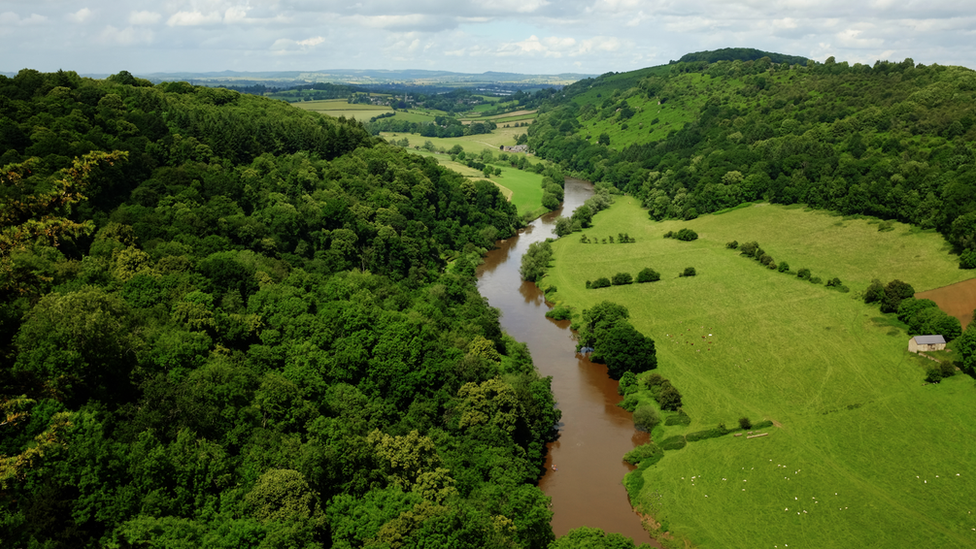Goddess of the Wye highlights river's pollution levels
- Published
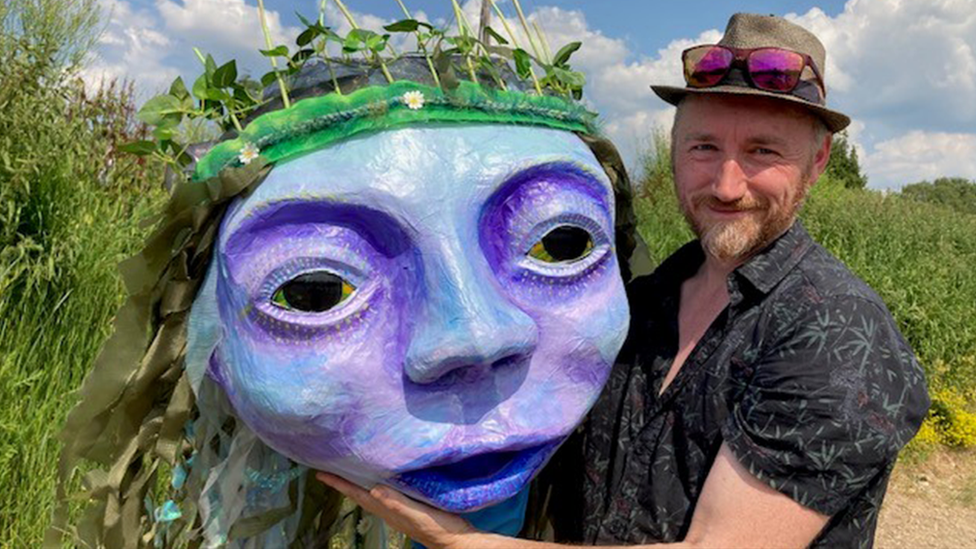
Puppeteer Kim Kaos with the Goddess of the Wye
A giant puppet has been created by campaigners to raise awareness of pollution levels in the River Wye.
The 10ft (3m) tall Goddess of the Wye, made by artist Kim Kaos for campaigners Save The Wye, was unveiled in Ross-on-Wye.
Last month, Natural England officially downgraded the status of the river to "unfavourable - declining".
Rachel Bomford, from Save The Wye, likened the situation to "watching an old friend die in front of your eyes".
It comes after one local fisheries manager said he faces giving up angling on the river after 45 years because of the pollution.
Ms Bomford said: "We're beginning to get the various people who need to step up and do something talking to each other - but all they're doing is talking, nothing has actually changed in terms of the amount of pollution going into the river."
The puppet is made almost entirely from scrap and recycled items and will be appearing at events in the Wye Valley over the summer.
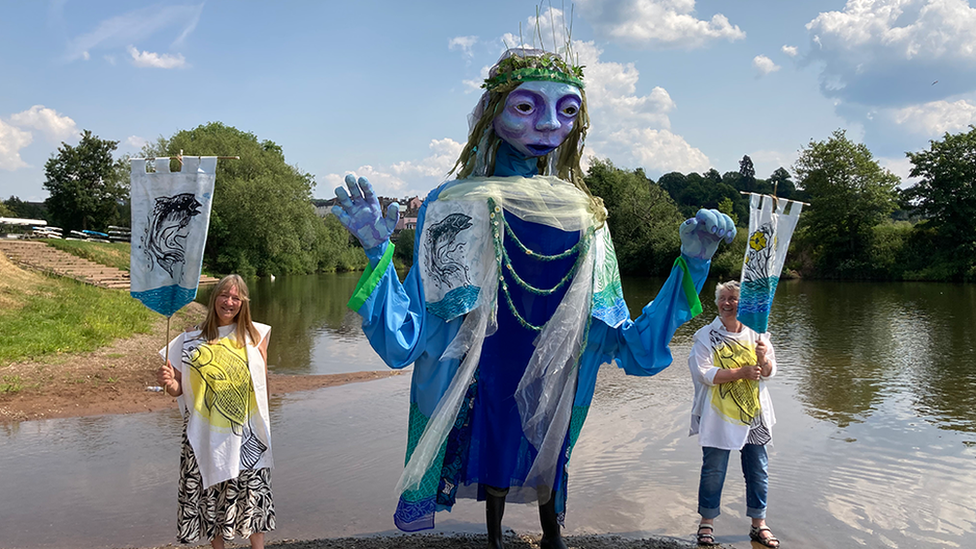
The Goddess of the Wye will help highlight the pollution issues the river is facing
River campaigner Dany Sayers said it was important to keep highlighting problems with the river.
"Although there's a strong message with her, she's the embodiment of the river, it's an entity, it's a living, breathing thing that is dying - so we're really trying to keep the spotlight on that, but she's also child friendly so she can interact with children and bring the message to a wider audience we hope," he said.
Scientists from Lancaster University say the pollution is caused by manure from livestock - including chickens - when it is spread on land as fertiliser.
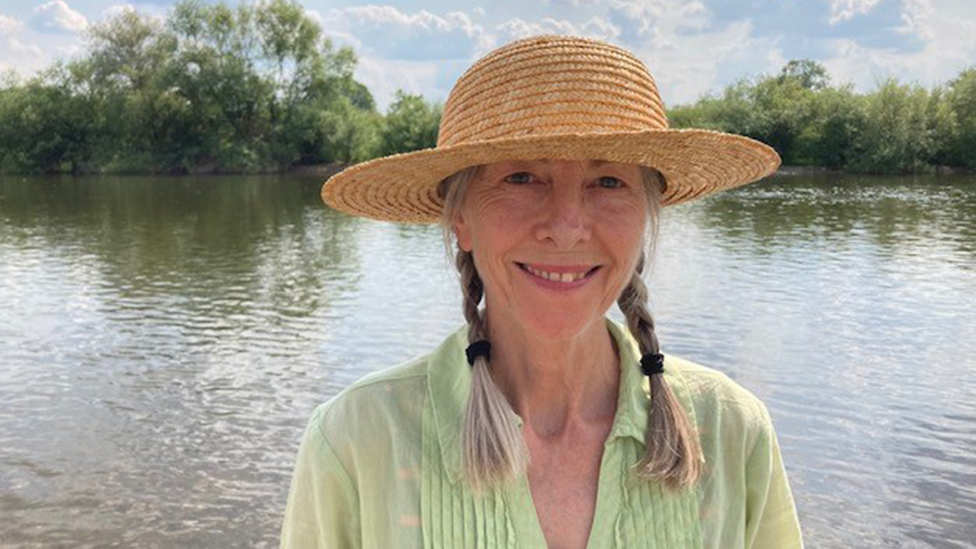
Campaigner Rachel Bomford said it was sad to see the river decline
Soil and fertiliser then runs into the river when it rains, causing a build-up of algae that depletes oxygen levels, leaving fish, mammals and birds at risk.
There are 24 million chickens being farmed in the catchment at any one time, according to data from the Campaign for the Protection of Rural Wales (CPRW) and the Campaign for the Protection of Rural England (CPRE).
Close farms
Altogether, livestock farming contributes more than 70% to the pollution in the River Wye and River Lugg, the university has said.
Avara process about two million chickens every week at their factory in Hereford and supply supermarket giant Tesco.
The firm has said it plans to reduce the impact their suppliers have on the river by 2025.
It has already reduced the amount of manure produced by farms supplying them by 30%, through closing some farms and working with famers to remove it from the area.

Follow BBC West Midlands on Facebook, external, Twitter, external and Instagram, external. Send your story ideas to: newsonline.westmidlands@bbc.co.uk, external
Related topics
- Published30 May 2023
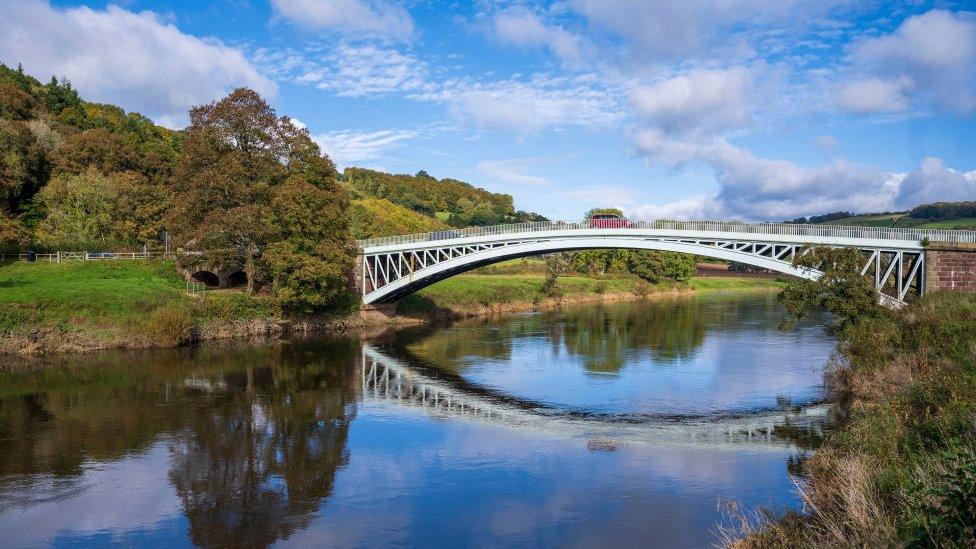
- Published26 May 2023
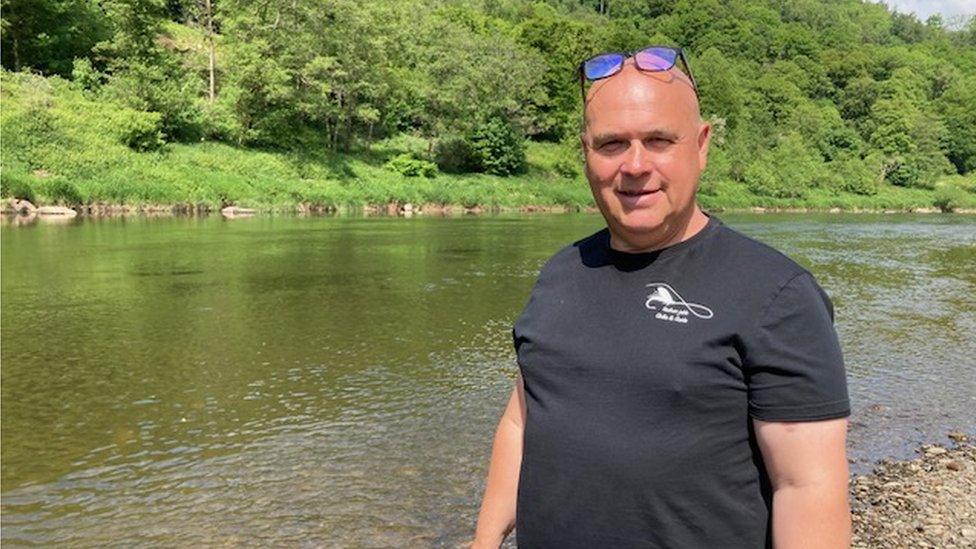
- Published7 February 2023
